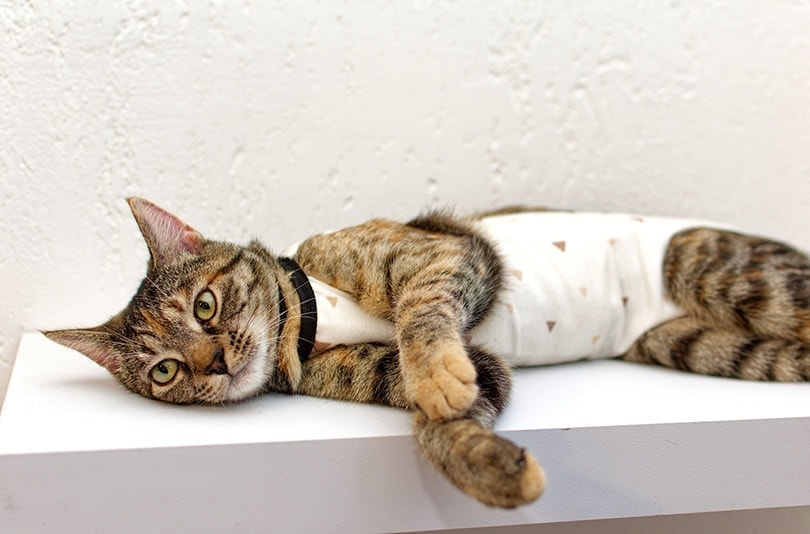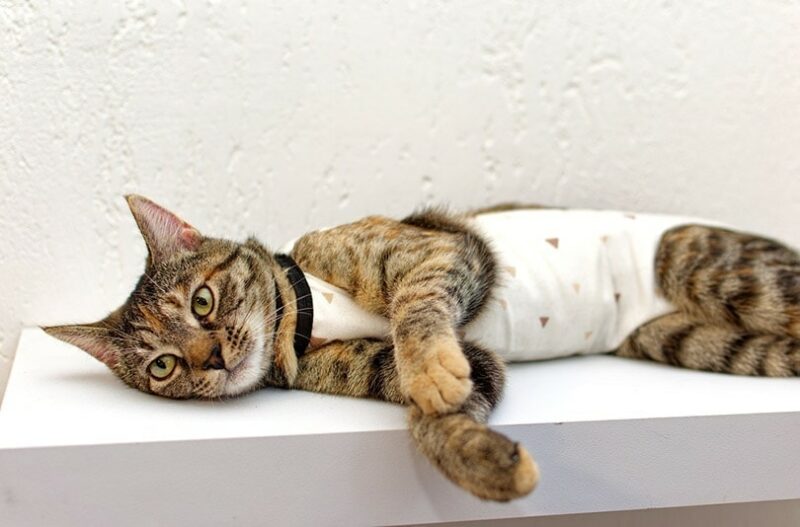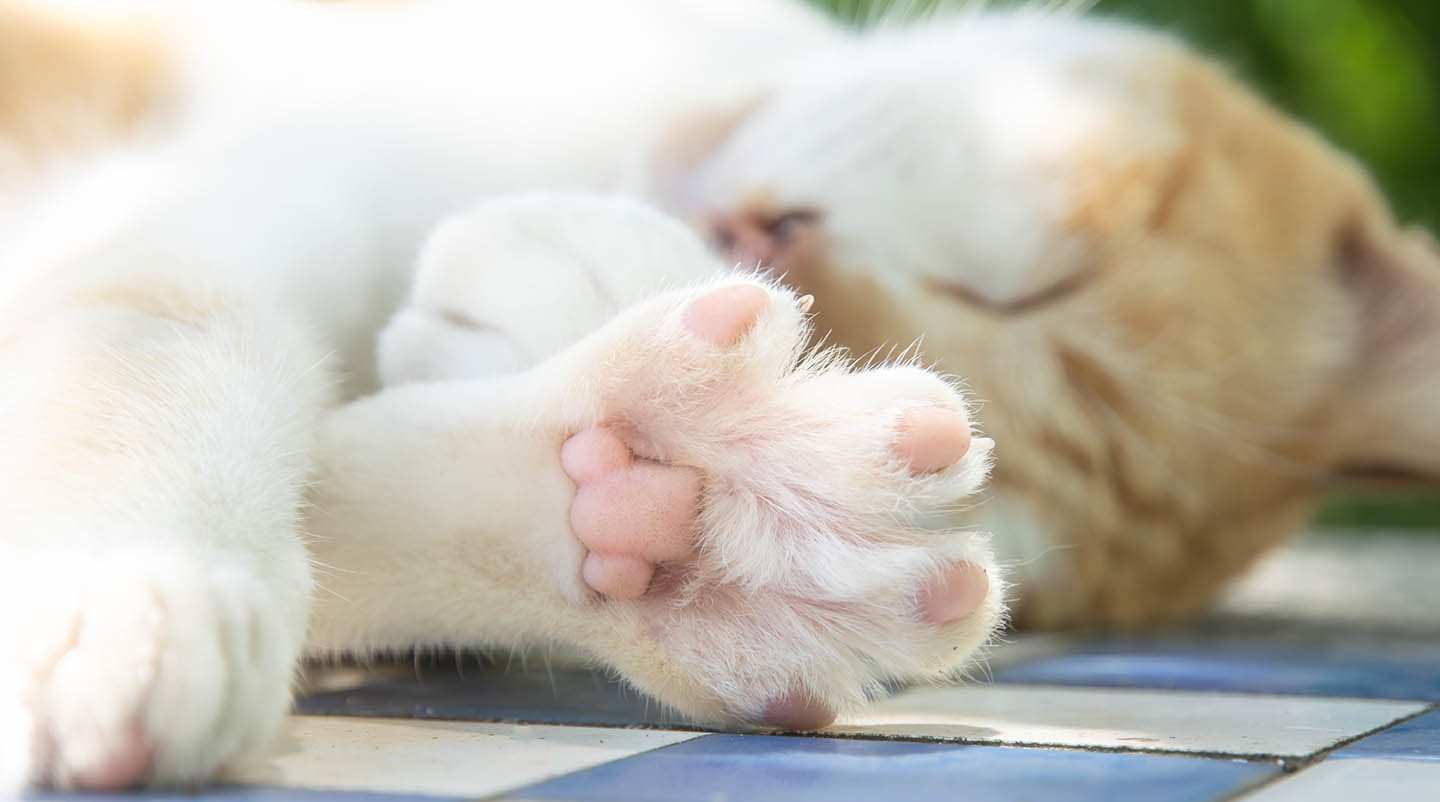There are over 60 million homeless cats across the United States.1 For some of them, living outdoors is all they’ve known, having been born to feral parents. For others, this way of life is something they’ve had to navigate and adapt to after being abandoned by their owners or getting lost. These street cats rarely die of old age but from diseases, injuries and infections. As a responsible cat owner, it’s important to neuter your cat.
Cats usually reach sexual maturity and can start to reproduce from around 4 months of age. To prevent accidental pregnancies, it’s recommended that you neuter your cat around this age. Neutering before this age is common and safe, but it’s important that your kitten is first vaccinated for their own protection as well as the protection of the other pets.

Early Neutering Is a Common Procedure
Many animal shelters will neuter their kittens from 6 weeks of age, but some states require them to wait until the kitten is 2 months old and over 2 pounds in weight.
The reason the surgery doesn’t occur earlier than 6–8 weeks of age isn’t because of a risk of neutering complications but rather to ensure that they are fully immunized before undergoing surgery in an animal hospital that contains other pets. It’s important that your kitten is first vaccinated for their own protection as well as the protection of the other pets.
Another area of concern around neutering your kitten before 6 weeks of age is how their little bodies will handle the anesthesia and the factors surrounding surgery. Although modern anesthetic drugs are safe for kittens, there are risks of hypoglycemia and hypothermia.
Before surgery, your kitten won’t be able to eat for several hours, which can put them at risk for hypoglycemia. However, this risk can be reduced by minimizing the window between the kitten’s last meal and the surgery.
Hypothermia is another factor because a kitten’s tiny body can lose body heat quickly. However, their veterinarian can maintain their body temperature by using warming devices.
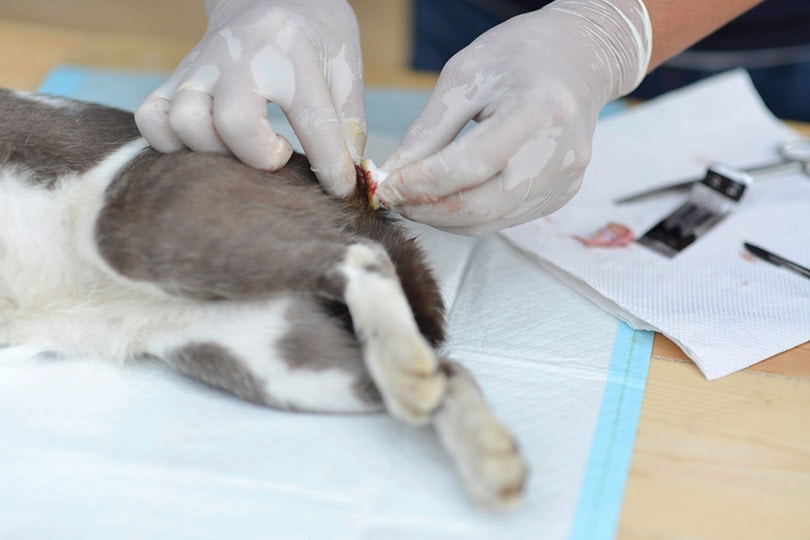
Myths Around Early Neutering
There are many misconceptions about neutering a cat too early, and many people have been told that cats do better if they’re neutered after their first litter of kittens or after their first heat. However, this only increases the chances of accidental pregnancy and contributes to feline overpopulation.
Below are some of the myths you may have heard about early neutering. However, there is recent evidence to show these concerns are likely unfounded.
- It can cause Urinary Tract Obstruction
- It can cause orthopedic problems
- It can cause undesirable behavior
Although more research on this subject is needed, many vets are comfortable performing this surgery on kittens that are as young as 8 weeks of age. There has also been a study carried out on groups of kittens that were neutered at different ages, and the results showed that age didn’t have an effect on the cat’s behavior or development. In fact, there were more minor complications uncovered in the older neutered age group than in the youngest one.
There are a few benefits to neutering kittens early as opposed to waiting until the standard age. Younger kittens tend to recover faster from the anesthesia and experience less trauma, and the surgery is often quicker because kittens are smaller and have less fat, making them easier to operate on.
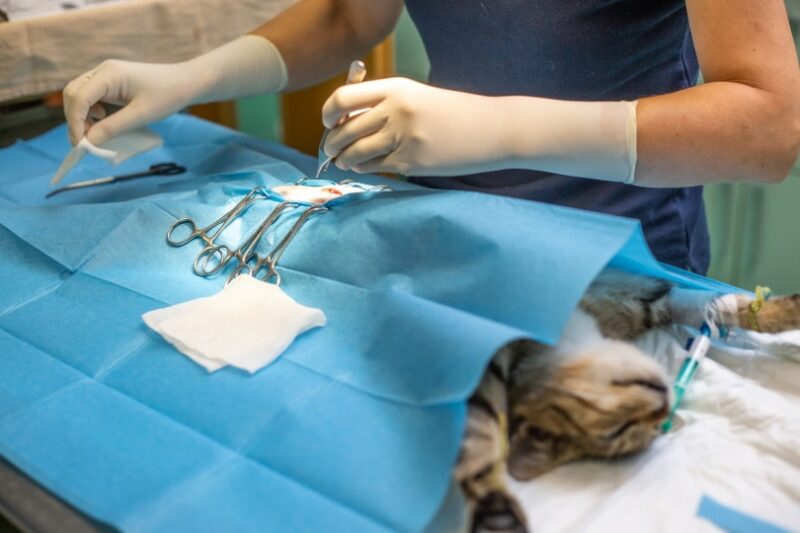
Why People Neuter Their Cats at Different Ages
Although it is relatively safe to neuter your kitten from as early as 8 weeks of age, it is not always necessary, and most vets encourage owned cats to be neutered between 4–5 months.
Animal shelters commonly have their kittens neutered early so that they’re suitable for adoption while they’re still young, as most people prefer adopting kittens over older cats. Some people prefer to get it done as early as possible because different cats reach sexual maturity at different ages, and they don’t want the risk of their kitten becoming pregnant.
However, most cats reach this stage at around 4 months of age, so as long as you have them neutered around this age, they’re unlikely to fall pregnant. Some vets are more in favor of waiting until this age because most kittens receive their last vaccination at around 16 weeks, becoming fully inoculated. These kittens also weigh more and have a lower risk of developing hypoglycemia or hypothermia.
The final decision is made between you and your vet. Your vet will use their professional judgment based on your kitten’s health and breed, as well as their knowledge, to determine the best time for your kitten to undergo the procedure.

Are There Other Benefits to Neutering My Cat?
Apart from adding to the number of unwanted kittens in the United States, neutering your cat will likely extend their lifespan. Here is why:
It Prevents Certain Cancers and Diseases
Neutering and spaying can reduce the risk of testicular cancer. It also reduces the possibility of prostate and uterine infections. These diseases can be life-threatening to your cat.
It Can Help Eliminate Bad Behavior
Male cats spray around your home to mark their territory. They feel the urge to do this because of their hormones. Female cats in heat can also be troublesome as they become very vocal. They howl to get the attention of a mate and may even spray around your home to let males know where to find them. However, neutering your cat while they’re still young will prevent them from developing this behavior.

It Can Reduce Injuries
Unaltered female and male cats tend to roam in an attempt to find a mate. This can cause them to become lost and puts them at risk of danger. Your house cat may not know how to navigate the world outside their home and can get hit by a car, attacked by a dog, injured from a fall, etc.
Unaltered males also tend to fight other cats over their territory, which puts them at risk of serious injuries and infections. Although neutering your cat might not eliminate these urges, it will reduce them.

Conclusion
Although there are a few risks around the surgery, neutering your kitten early isn’t harmful to them. Instead, it can protect your cat from roaming tendencies, diseases, cancers, danger, and problem behavior. There are many misconceptions about early neutering, and although more research is needed, there has been little evidence so far to back up these claims.
Instead, studies have shown that there is little difference in a cat’s long-term health if you neuter them at 8 weeks or wait until 4 months of age.
Featured Image Credit: BadPixma, Shutterstock

